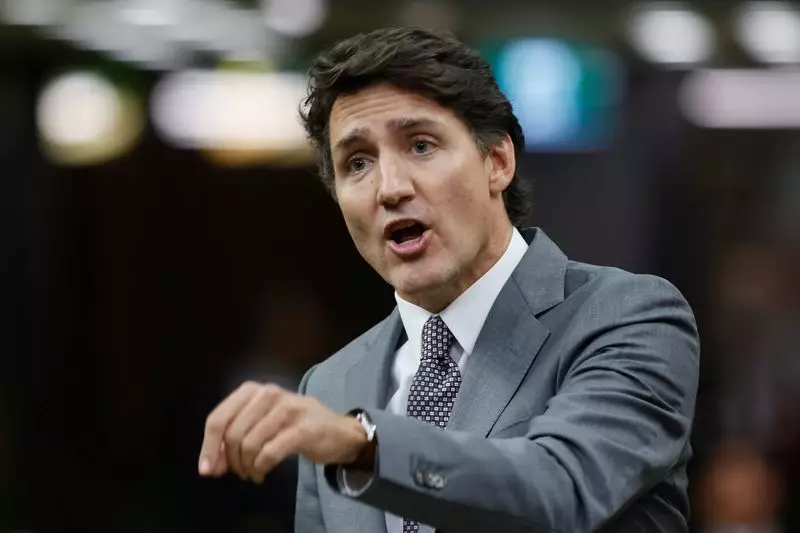The once-stable dominance of the Liberal Party in Canada is experiencing unprecedented challenges, particularly with Prime Minister Justin Trudeau at the helm. Recent electoral developments have illuminated a growing discontent among voters, as the party grapples with plummeting poll numbers. In a critical special election for the Montreal riding of LaSalle—Emard—Verdun, the Liberals are fighting to retain their hold on a seat that they traditionally considered a safe bastion. This election, prompted by the resignation of a Liberal MP, marks a potential turning point. Should Trudeau’s party fail to secure this seat, it could galvanize calls for his replacement, underscoring the fragility of leadership amid growing political and public scrutiny.
Trudeau’s popularity has waned significantly after nearly a decade in office, a situation compounded by rising living costs and a critical housing crisis affecting many Canadians. In a revealing moment, Alexandra Mendes, a Liberal MP from Quebec, voiced what numerous constituents have expressed—uncertainty regarding Trudeau’s suitability as leader. “I didn’t hear it from two or three people; I heard it from dozens,” Mendes remarked, highlighting an alarming trend of dissatisfaction. This sentiment among party members raises critical questions about Trudeau’s leadership during a period marked by economic strain and public frustration, particularly as dissatisfaction transitions from voters to the party’s own ranks.
Economic pressures fuel public discontent. With inflation and rising prices overshadowing everyday lives, Trudeau’s government is confronting the harsh realities of its policies, which some constituents feel have not adequately addressed their needs. The Prime Minister himself acknowledged these struggles, referencing the emotional weight carried by Canadians dealing with increased costs of living. Such a scenario presents a potential electoral risk as Canadians assess their options in the face of systemic issues, like housing affordability and economic instability.
The Conservative Party, led by Pierre Poilievre, appears poised to capitalize on the Liberals’ missteps, dangerously positioning himself as a viable alternative amid rampant voter frustration. Recent polling data points to Conservative support hitting levels rarely seen in Canadian politics, indicating that Trudeau’s party might be in grave danger in the run-up to the next federal elections scheduled for late 2025. Such stark statistics delineate a widening gap between public confidence and current government performance.
The electoral showdown in LaSalle—Emard—Verdun serves as a barometer for broader political sentiments toward the Liberal Party. Previously, in the 2021 federal elections, the Liberals showcased a substantial lead, securing 43% of the vote compared to the separatist Bloc Quebecois at 22% and the New Democratic Party at 19%. However, current polls signify a tightening competition, with the three primary parties now neck and neck. Such tightening margins illustrate the melting support base for the Liberals, leading them to reconsider strategies as internal divisions grow louder.
Additionally, the backdrop of civic discontent is punctuated by activists on the ballot, voicing indignation over Trudeau’s failure to fulfill a significant 2015 pledge to reform Canada’s voting system. This situation compounds the challenges faced by the Liberal Party, increasing the stakes of voter turnout and engagement and threatening to delay the results of a pivotal election.
Looking forward, Trudeau and his party face an uphill battle. The implications of losing the special election extend beyond mere statistics; it speaks volumes about the future trajectory of a party that has historically prided itself on its support and cohesion. Competitors are eager to label the Liberals as out of touch with the realities that average Canadians face, a narrative that could have lasting ramifications on their electoral viability.
As challenges mount under Trudeau’s leadership, the pressure for change within the party grows louder. With a critical eye on upcoming elections, both the Liberal hierarchy and the electorate must ponder the road ahead—one that might demand transformative leadership or else risk the Liberal legacy that has long characterized Canadian politics.


Leave a Reply